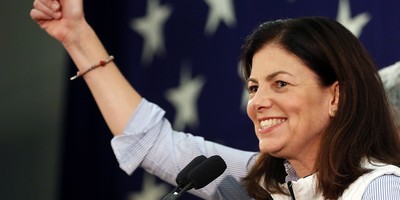This week, Tunisia's Jasmine Revolution became the first Arab Spring state to enter Phase Two of the revolutionary process, as Islamist Ennahda formed a government tasked with writing a constitution, ending cronyism, maintaining securit, and expanding the economy. Tall orders, especially demanding for a society transitioning from a dictatorship to ... to something else.
Sincerely linking democratic and Islamist seems implausible if not impossible to many people around the globe. They have good reasons: Iran's malign regime, Taliban Afghanistan, 9-11's massacre and a crime that should anger everyone who values free expression, the barbaric murder of artist Theo van Gogh in Holland.
However, the impossibility of Democratic Islamism (erect the capital letters, tentatively) is precisely what al-Qaida and other militant Islamist extremist organizations want the world to believe, especially the world's Muslims, whether they live in Pakistan, Holland or Paris, Texas. Militant extremists, including the Ayatollah Ruhollah Khomeini's Iranian brand, proclaim the only legitimate governments -- anywhere -- are those controlled by devout Muslims committed to a rigid interpretation of Islamic law and the enforcement of that interpretation. Iran holds elections, sham elections, but the mullahs and their Revolutionary Guards run a clerical dictatorship.
In the wake of their October election victory, Ennahda's leaders insistently assured Tunisian liberal democrats, religious minorities and leftists that they would not impose sharia law and clerical rule on Tunisia's secular society. May Tunis' bars sell beer and wine by the liters; the more bikinis on the Mediterranean beaches, the better. Tourism brings hard cash to Tunisia, and economic expansion (creating real jobs) was a central revolutionary demand. Moreover, Ennahda, which won a large plurality of seats in the Constituent Assembly, would lead a coalition government where members of the secular opposition held powerful cabinet positions.
Recommended
Are Ennahda's leaders liars, with a Taliban Tunisia their stealth political objective? Or is their claimed commitment to the often fuzzy but infinitely more prosperous and just process called constitutional democracy real?
No one will know the answer with any certainty, including Ennahda's leaders, until we find out if Ennahda can lose an election and peacefully cede ruling power to a secular party. That moment is likely four or five years in the future.
This same uncertainty afflicts Turkey, where the Islamist-rooted Justice and Development Party (AKP) currently enjoys a large parliamentary majority. Turkey is a secular democracy, but even there we don't yet know if ruling Islamists can lose an election and become a loyal opposition party. Turkish secularists contend the AKP is dismantling Turkey's democracy and will never relinquish power. The AKP says that it is demilitarizing Turkey's state in order to meet European Union democratic guidelines. The AKP website claims that "the secular, democratic, social state of law and the processes of civilianization, democratization, freedom of belief and equality of opportunity are considered essential" to its political program.
The AKP has had to please Turkish voters in order to win elections -- in other words, it has faced a bottom-up democratic check (a free election) on top-down decisions. In my own view, Turkey is already deeply engaged in a two-decade-long experiment to determine if Democratic Islamists can evolve along the lines of European "Christian Democrat" parties. We don't know the outcome, but this experiment is nine decades in the making.
Ennahda pleased enough voters to win a plurality, but Tunisia's situation is far more fragile. Last week, optimists in Tunisia were shaken when Ennahda general-secretary and (as of Monday) the country's prime minister, Hamadi Jebali, indicated he supports a new caliphate. Jebali quickly tried to clarify his comments as those of a pious Muslim advocating fair government. A gaffe by a man using a spiritual metaphor? Or a slip revealing Jebali's real agenda?
The future of Tunisia relies upon Jebali's integrity. He campaigned as an advocate of parliamentary government. The caliphate is not a jobs program. Clerical governments epitomize cronyism. If Jebali's Democratic Islamism is a fraud, Tunisia may draft a constitution, right before it descends into civil war.

























Join the conversation as a VIP Member